第75章 CHAPTER XXIII SINGULAR SUPERSTITIONS(2)
Could it have been, then, that when I asked him whether he desired to go to this heaven of bread-fruit, cocoa-nuts, and young ladies, which he had been describing, he answered by saying something equivalent to our old adage "A bird in the hand is worth two in the bush!"- if he did, Kory-Kory was a discreet and sensible fellow, and I cannot sufficiently admire his shrewdness.
Whenever, in the course of my rambles through the valley, I happened to be near the chief's mausoleum, I always turned aside to visit it. The place had a peculiar charm for me; I hardly know why, but so it was. As I leaned over the railing and gazed upon the strange effigy, and watched the play of the feathery head-dress, stirred by the same breeze which in low tones breathed amidst the lofty palm trees, I loved to yield myself up to the fanciful superstition of the islanders, and could almost believe that the grim warrior was bound heavenward. In this mood, when I turned to depart, I bade him, "God speed, and a pleasant voyage." Ay, paddle away, brave chieftain, to the land of spirits! To the material eye thou makest but little progress; but, with the eye of faith, I see thy canoe cleaving the bright waves, which die away on those dimly looming shores of Paradise.
This strange superstition affords another evidence of the fact, that however ignorant man may be, he still feels within him his immortal spirit yearning after the unknown future.
Although the religious theories of the islands were a complete mystery to me, their practical every-day operation could not be concealed. I frequently passed the little temples reposing in the shadows of the Taboo Groves, and beheld the offerings- mouldy fruit spread out upon a rude altar, or hanging in half-decayed baskets around some uncouth, jolly-looking images. I was present during the continuance of the festival. I daily beheld the grinning idols marshalled rank and file in the Hoolah Hoolah ground, and was often in the habit of meeting those whom I supposed to be the priests. But the temples seemed to be abandoned to solitude; the festival had been nothing more than a jovial mingling of the tribe; the idols were quite as harmless as any other logs of wood; and the priests were the merriest dogs in the valley.
In fact, religious affairs in Typee were at a very low ebb. All such matters sat very lightly upon the thoughtless inhabitants; and, in the celebration of many of their strange rites, they appeared merely to seek a sort of childish amusement.
A curious evidence of this was given in a remarkable ceremony, in which I frequently saw Mehevi and several other chiefs and warriors of note take part; but never a single female.
Among those whom I looked upon as forming the priesthood of the valley, there was one in particular who often attracted my notice, and whom I could not help regarding as the head of the order. He was a noble-looking man, in the prime of his life, and of a most benignant aspect. The authority this man, whose name was Kolory, seemed to exercise over the rest, the episcopal part he took in the Feast of Calabashes, his sleek and complacent appearance, the mystic characters which were tattooed upon his chest, and, above all, the mitre he frequently wore, in the shape of a towering head-dress, consisting of part of a cocoa-nut branch, the stalk planted uprightly on his brow, and the leaflets gathered together and passed round the temples and behind the ears, all these pointed him out as Lord Primate of Typee. Kolory was a sort of Knight Templar- a soldier-priest; for he often wore the dress of a Marquesan warrior, and always carried a long spear, which, instead of terminating in a paddle at the lower end, after the general fashion of these weapons, was curved into a heathenish-looking little image. This instrument, however, might perhaps have been emblematic of his double functions. With one end, in carnal combat he transfixed the enemies of his tribe; and with the other, as a pastoral crook, he kept in order his spiritual flock.
But this is not all I have to say about Kolory. His martial grace very often carried about with him what seemed to me the half of a broken war-club. It was swathed round with ragged bits of white tappa, and the upper part, which was intended to represent a human head, was embellished with a strip of scarlet cloth of European manufacture.
It required little observation to discover that this strange object was revered as a god. By the side of the big and lusty images standing sentinel over the altars of the Hoolah Hoolah ground, it seemed a mere pigmy in tatters. But appearances all the world over are deceptive.
Little men are sometimes very potent, and rags sometimes cover very extensive pretensions. In fact, this funny little image was the "crack" god of the island; lording it over all the wooden lubbers who looked so grim and dreadful; its name was Moa Artua.* And it was in honour of Moa Artua, and for the entertainment of those who believe in him, that the curious ceremony I am about to describe was observed.
* The word "Artua," although having some other significations, is in nearly all the Polynesian dialects used as the general designation of the gods.